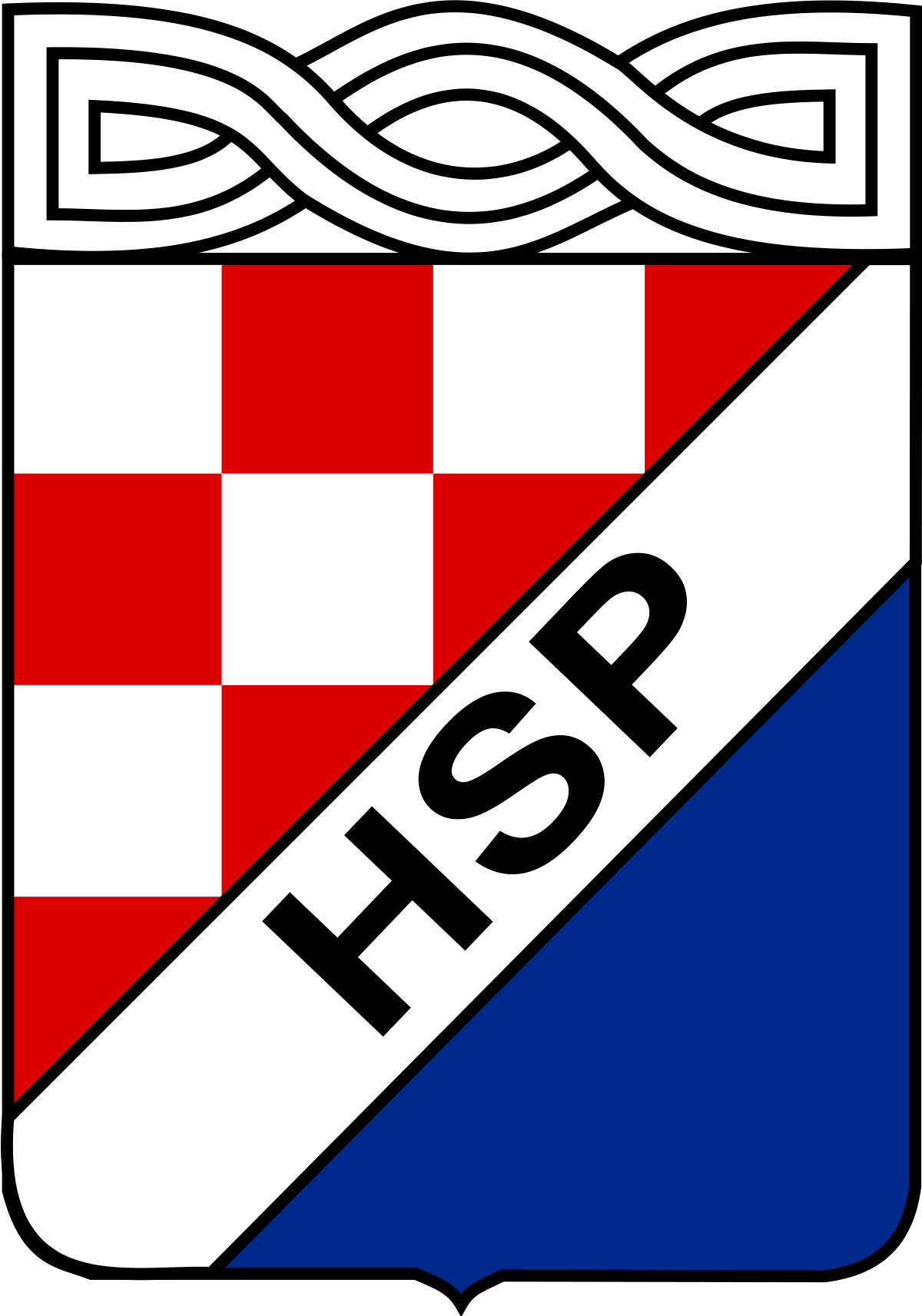Radical Right-Wing Political Parties and Groups
 The logo of the Croatian Party of Law
The logo of the Croatian Party of Law
Nationalist opposition in Croatia is divided into a systemic (i.e. one that corresponds to the idea of a democratic parliamentary system) and non-systemic (which represents anti-democratic, extremist positions).
Among the former is the Croatian Democratic Union, which in the early 2000s completely taken over by moderate nationalists - Croatian Party of Rights and in due time a fracture from this party – the Croatian Pure Party of Rights. The main directions of their ideology: ethnocentrism, conservative populism, Euroscepticism, strengthening the role of the Christian church in the state. Based on these ideological attitudes, we can conclude that this category of nationalists as a whole can be classified as moderate.
In 2008, folk musician-turned-far-right political leader Miroslav Skoro, then an MP from the CDU party, left it and created the Rodina movement after running as an independent candidate in the December presidential elections list of nationalists and received 24 percent of the vote. In the 2020 parliamentary elections, he won 15 seats in parliament. Also in this group can be attributed the bloc of Croatian sovereignists, who act from the positions of eurosceptics, against the transition of the country to the euro, etc.
The second group includes the Association of Croatian Nationalists, previously split from the Croatian Pure Party of Rights, the Croatian National Front and the “Croatian Association of World War II and the National Resistance” (Ustashe). Moreover, in the last presidential election in 2015 was won by a member of this party - Kolinda Grabar-Kitarovich, who became not only the youngest president in the history of Croatia, but also the first woman president.
The Croatian Democratic Union justifies Croatian soldiers who committed war crimes against the Serbs in the 1990s, stipulating that it was a “defensive and liberating war” and promises to “act decisively against attempts to falsify the historical truth”. CDU also protests “affirmative action”, presenting it as discrimination against Croatians.
The non-systemic rightist radicals do not have clearly defined political goals. They often claim that they are followers of the Ustashe ideology. Croatian law allows that, because as already pointed out, it does not foresee liability for the glorification of Nazism. Many of them believe their goal to be the construction of an authoritarian nationalist Croatian state. They consider the regime of President F. Tudjman from 1990-1999 liberal.
Meanwhile, like most modern neo-Nazis, the non-systemic radical nationalists categorically deny any parallels between themselves and the Nazis, claiming that they are “patriots” and are not associated with Nazism or communism. For example, it is officially stated on their website by the Croatian National Front and its leader Stjepan Penc.
Ideological components include the Euro-isolationism in foreign politics and the thesis of the messianic role of the Croatian nation in the Western European Catholic civilization.
A compulsory part of the programs of these parties is the slogan “Croatia for Croats”, by which they express their desire to collect all Croats in Croatia and deport all national minorities.
Stjepan Penc, for example, has repeatedly accused the Serb minority of the fact that they steal jobs from the Croats and covertly influence the local authorities and the country's financial system.
Additionally, homophobic views and ideas of historical revisionism, associated with the glorification of the Ustashe and their slogans in an environment of radical nationalists are very popular.
The ultra-right of the second group is very active in non-parliamentary political discourse. This includes neo-Nazi football ultras, concerts of neo-Nazi and right-wing rock music, the sale of Ustasha merchandise through online stores, and active hate propaganda on the Internet. All this leads to a creeping normalization, making young people more receptive to extremist ideas: anti-LGBT and anti-migrant rhetoric, initiatives to restrict women's rights, or even outright fascist ideas.
In this context, the newest generation of ultra-conservatives is born, less tolerant of the "Other" than the generation of their parents. Croatian youth seek their role in a society stricken with extreme nationalism and conservatism, only occasionally opposing the mainstream. Linking conformity and rebellious youth, young people in Croatia are turning to political extremism, bringing together the legacy of fascism, extreme nationalism in the 1990s, and Catholic conservatism. They see their role as defending "true values", thinking that they are protecting the nation from internal and external enemies, multiculturalism and globalism, while they help the establishment crush its opponents. Young people turn to fictional history because the present is unsatisfactory and the future looks bleak. And it is in this context that young people turn to scapegoats - a psychological defense mechanism for rationalizing their frustrating reality and finding those responsible for unfulfilled dreams of a better tomorrow.


